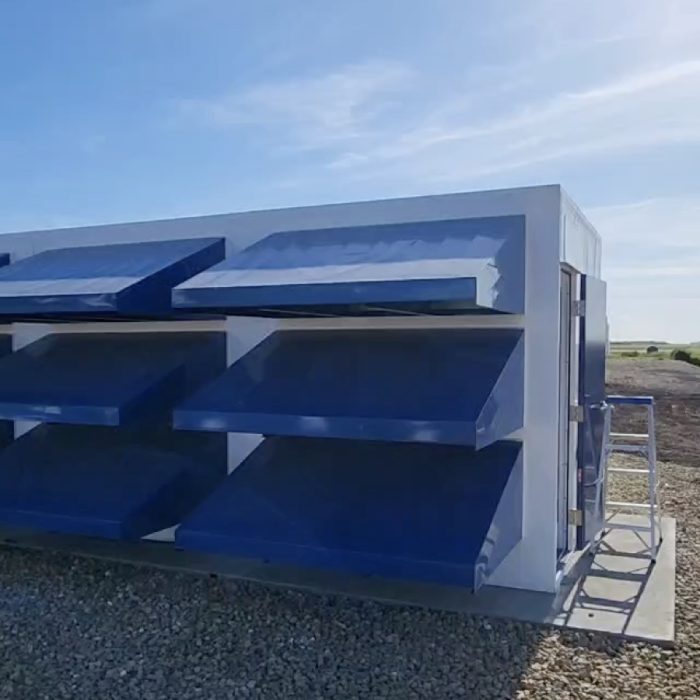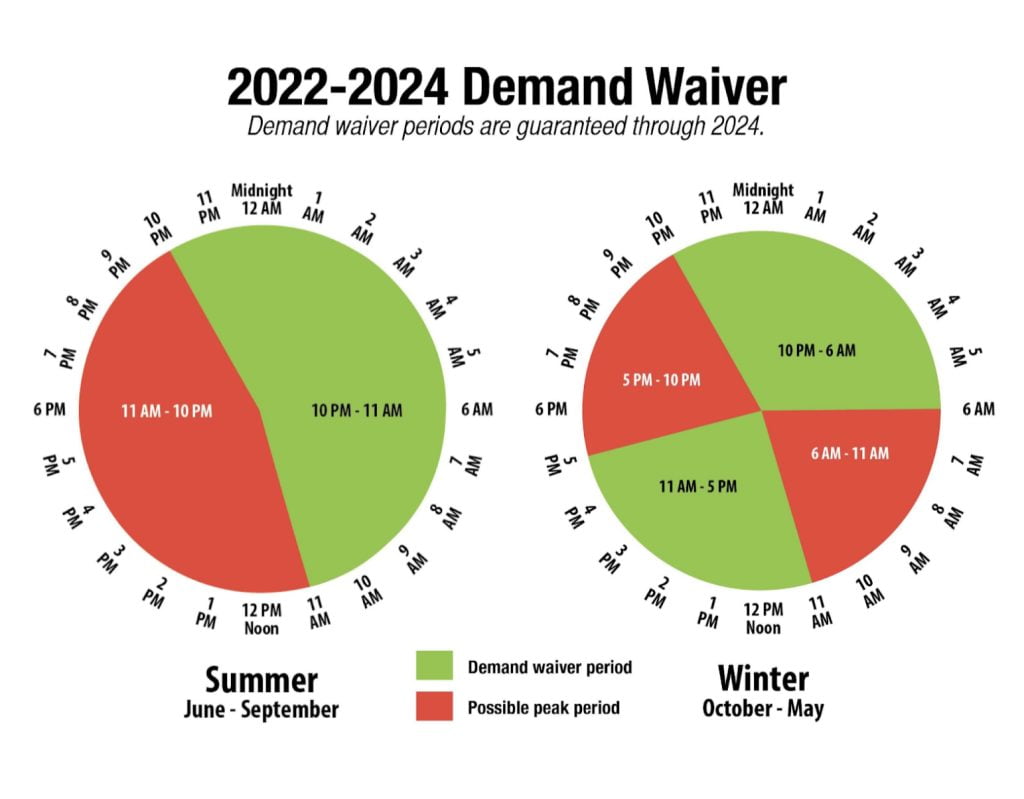
Decoding Bitcoin Mining with Penny Ether | Digital Gold Podcast
Decoding Bitcoin Mining: Is It a Hamster Wheel or a Money Printer? Digital Gold Podcast: How Penny Ether Turns Data into Profits in the Bitcoin Mining Industry: Strategies, Market...
Politicians and major media outlets are quick to sound the alarm. But looking at the data, really, is bitcoin harmful to the environment?
It’s 2022 and we’re experiencing all the things that “the experts” warned us about. Forces of division and authoritarianism are running wild, and perhaps most worryingly, the Earth itself is at risk, facing mounting climate change and pollution (the word “risk” is being generous — scientists say the effects of global warming became “irreversible” over a decade ago).
What does this mean for Bitcoin, and for Bitcoin miners? Brace yourselves for a nightmarish run of statistics that will leave you begging us to stop.
Did you know that Bitcoin produces annual carbon emissions comparable to Greece? Or that a single Bitcoin transaction could power an average US household for a month? We’ll bet you haven’t even considered the impact of toxic Bitcoin mining pollution on communites’ waterways.
In fact, it gets worse — a few years ago, the World Economic Forum estimated that by 2020, Bitcoin mining would consume as much electricity as the entire world. Indeed, two years on from that fatal prediction, it seems the only thing separating us from a swift, rocky, Bitcoin-induced Armageddon is an ever-thinning thread of pure luck.
You, the environmentally conscious reader, may find yourself feeling that all hope is lost. But don’t throw in the towel for planet Earth just yet — we have some good news.
The good news is that each piece of information you just read — these common, fear-mongering statistics — are all deeply misleading, if not patently false. So is bitcoin harmful to the environment? We’ll explain.
You may have noticed by now that Bitcoin is a pretty divisive issue. There are people arguing on both sides of it, and some of them are making a real effort to distort the public understanding of Bitcoin’s energy consumption.
Take for instance Jared Huffman’s open letter urging the EPA to crack down on Bitcoin mining, signed by 22 members of congress and the source of our doomsday statements comparing Bitcoin’s energy footprint to the power consumption of Greece, or to average US households. Those figures may sound shocking at first, but it’s important to understand that they are being intentionally used to bolster an anti-Bitcoin position, and that the truth is much more nuanced, and much less worrying.
The University of Cambridge’s Judge Business School compiled a report with the intent to make Bitcoin’s energy consumption more tangible and meaningful for a diverse, general audience. At the outset, they included a disclaimer that we think sums things up nicely:
“Comparisons tend to be subjective — one can make a number appear small or large depending on what it is compared to. Without additional context, unsuspecting readers may be drawn to a specific conclusion that either understates or overstates the real magnitude and scale.
For instance, contrasting bitcoin’s electricity expenditure with the yearly footprint of entire countries with millions of inhabitants gives rise to concerns about Bitcoin’s energy hunger spiraling out of control. On the other hand, these concerns may, at least to some extent, be reduced upon learning that certain cities or metropolitan areas in developed countries are operating at similar levels.”
It stands to reason that Greece, with its relatively smaller economy and population, wouldn’t emit the highest levels of CO2. Now, New York City or London would be a different story. The point is, individual countries and economies each rely on different sets of resources to achieve success.
Bitcoin mining, on the other hand, is a fast-growing global industry which relies on electricity at a foundational level — it shouldn’t be too much of a surprise that Bitcoin produces more emissions than Greece.
You may have noticed by now that Bitcoin is a pretty divisive issue. There are people arguing on both sides of it, and some of them are making a real effort to distort the public understanding of Bitcoin’s energy consumption.
Take for instance Jared Huffman’s open letter urging the EPA to crack down on Bitcoin mining, signed by 22 members of congress and the source of our doomsday statements comparing Bitcoin’s energy footprint to the power consumption of Greece, or to average US households. Those figures may sound shocking at first, but it’s important to understand that they are being intentionally used to bolster an anti-Bitcoin position, and that the truth is much more nuanced, and much less worrying.
The University of Cambridge’s Judge Business School compiled a report with the intent to make Bitcoin’s energy consumption more tangible and meaningful for a diverse, general audience. At the outset, they included a disclaimer that we think sums things up nicely:
“Comparisons tend to be subjective — one can make a number appear small or large depending on what it is compared to. Without additional context, unsuspecting readers may be drawn to a specific conclusion that either understates or overstates the real magnitude and scale.
For instance, contrasting bitcoin’s electricity expenditure with the yearly footprint of entire countries with millions of inhabitants gives rise to concerns about Bitcoin’s energy hunger spiraling out of control. On the other hand, these concerns may, at least to some extent, be reduced upon learning that certain cities or metropolitan areas in developed countries are operating at similar levels.”
It stands to reason that Greece, with its relatively smaller economy and population, wouldn’t emit the highest levels of CO2. Now, New York City or London would be a different story. The point is, individual countries and economies each rely on different sets of resources to achieve success.
Bitcoin mining, on the other hand, is a fast-growing global industry which relies on electricity at a foundational level — it shouldn’t be too much of a surprise that Bitcoin produces more emissions than Greece.
Even so, Bitcoin still consumes just 0.23% of the world’s annual total energy production.
The question isn’t as simple as, “is Bitcoin harmful to the environment?” The real question is, how much energy does Bitcoin mining consume compared to other industries?
This is where we start to see some meaningful insight take place. According to the University of Cambridge, Bitcoin consumes 147.94 TWh of electricity per year. Compare that to the energy consumption of Bitcoin’s closest real-world analogue, gold mining, which uses 131 TWh of electricity per year. Suddenly, Bitcoin mining isn’t looking quite so scary.
Bitcoin’s consumption is outpaced by the copper industry at 167 TWh, doubled by the cement industry at 384 TWh, and totally dwarfed by the iron and steel industry at 1233 TWh. In fact, Bitcoin’s annual rate of energy consumption is nearly rivaled by refrigerators in the United States alone, clocking in at 104 TWh.
Clearly, Bitcoin mining’s environmental footprint is rather pedestrian.
To take things even further, let’s ask another question. Could Bitcoin mining somehow help the environment?
Funnily enough, yes. This was the case in our work with renewable energy producer BioStar.
BioStar Renewables operates solar energy farms in California. When they completed a new farm in 2018, the electrical grid was not ready to accept the power. Without a solution to connect to the local power grid, BioStar was at risk of losing the tax credits that were utilized to build their solar farm.
Instead, we helped BioStar avoid the loss by deploying Phase 1 of a mining operation on-site within 4 weeks of our initial conversation.
Bitcoin miners want to make a profit. To do that, they need to spend as little as they can on electricity. So for that reason, it’s not ideal to pay top dollar for high-demand energy resources like fossil fuels. In fact, the majority of energy used by commercial and residential consumers is too expensive for Bitcoin miners to make a profit.
Instead, Bitcoin miners take advantage of one of the industry’s unique traits — mobility.

It’s relatively quick and easy to set up a Bitcoin mining operation. As a result, miners will often choose to access what’s called “stranded energy.” Stranded energy resources are ones that are inaccessible to other industries or residential users; the electricity has already been generated, and instead of going to waste, it’s being used by business-savvy miners.
This kind of flexibility is huge for the electrical grid. Stranded energy is a major concern slowing the transition to renewable energy sources like wind and solar. With growing numbers of miners eager to tap into these stranded reserves, renewable energy providers are finding greater freedom to produce, and fewer risks associated with it.
The truth is, Bitcoin mining could be an essential key in bridging the transition to alternative forms of energy.
Major media is awash with hysteria over the environmental impact of Bitcoin mining (actually, major media is awash with hysteria over many things).
Hey, we would be too, if all we knew were the misleading stats at the top of this article.
We hope that this has served as a slightly deeper dive, one that takes you beyond the surface-level of a buzzy headline. By now you may realize that statistics like these are formulated to mislead, or to outright deceive, the well-intentioned viewing public.
There are a lot of big issues in the world today, some of which are worth worrying about. Luckily, Bitcoin mining’s destruction of planet Earth is not one of them.
Source: Antminer S9 Profitability
Even with $0.06/kWh—a very cheap electricity rate—the S9 daily profit is still just $1/day as shown above*. And if your electricity price is $0.10/kWh or higher, you’ll be in the red due to the S9’s poor efficiency.
So, if you want to mine at home and learn the ropes without breaking the bank, the S9 from Bitmain is probably the way to go. But if you want to really make money mining bitcoin in 2022, you should look to more efficient hardware.
Decoding Bitcoin Mining: Is It a Hamster Wheel or a Money Printer? Digital Gold Podcast: How Penny Ether Turns Data into Profits in the Bitcoin Mining Industry: Strategies, Market...
Why Bitcoin Mining Is the Most Misunderstood Infrastructure Investment of 2025 Why Institutional Investors Are Rethinking Bitcoin Mining as a Strategic, High-Efficiency Infrastructure Play The Myth: Bitcoin Mining Is...
The Convergence of Bitcoin, AI, and Energy Digital Gold Podcast: The Infrastructure Race: Bitcoin Mining Meets AI with Taylor Towler and Bill Schneider This episode of the Digital Gold...
From Bitcoin Rabbit Hole to Global Dominance: A Journey Architecting the World’s Largest Mining Pool Digital Gold Podcast: Building the Biggest Bitcoin Mining Pool with Mike Colyer, CEO of...
A Bitcoin Mining Pioneer’s Story Digital Gold Podcast: From Fish Tanks to Hundreds of Megawatts: Carson Smith’s Industrial Leap In this Digital Gold Podcast episode, JohnPaul Baric talks with...
Your Heater Can Mine Bitcoin: The Revolutionary Tech Turning Waste Heat Into Digital Gold Digital Gold Podcast: The Cheapest Power in the World and only Getting Cheaper with Hestia’s...